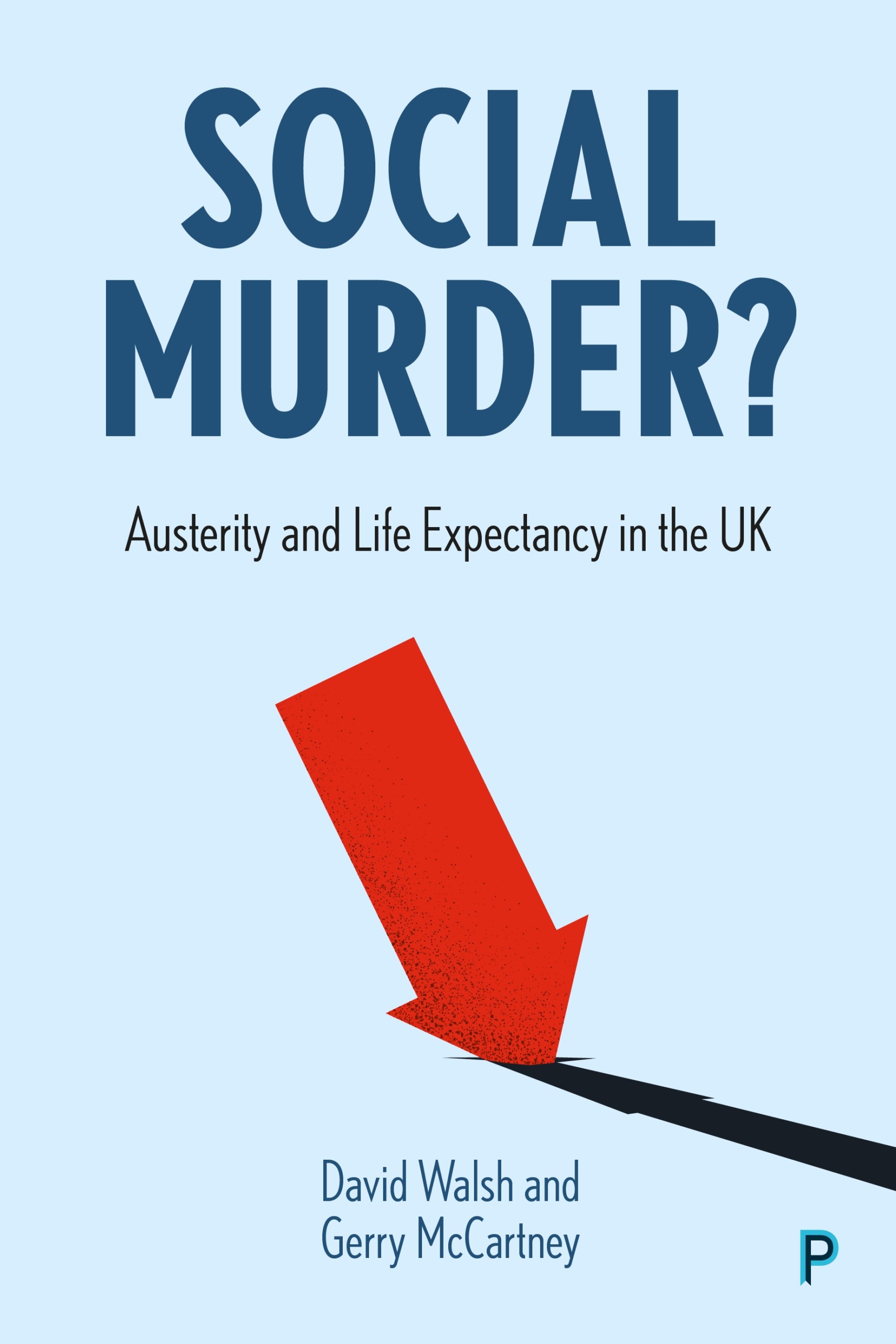Friedrich Engels, in his famous book ‘The Condition of the Working Class in England’, said:
“When one individual inflicts bodily injury upon another such injury that death results, we call the deed manslaughter; when the assailant knew in advance that the injury would be fatal, we call his deed murder. But when society places hundreds… in such a position that they inevitably meet a too early and an unnatural death… when it deprives thousands of the necessaries of life, places them under conditions in which they cannot live… its deed is murder just as surely as the deed of the single individual; disguised, malicious murder, murder against which none can defend himself, which does not seem what it is, because no man sees the murderer, because the death of the victim seems a natural one, since the offence is more one of omission than of commission. But murder it remains… social murder.”
We argue that the hundreds of thousands of extra deaths seen in the UK between 2012 and 2019 (with many more during and after the pandemic) can be accurately described as social murder. Why? Simply put, these extra deaths are largely due to austerity policies, and although it was well known that these kinds of policies would cause higher mortality, people in power implemented them anyway.
Evidence old, evidence new
As academics, we have spent years undertaking a series of meticulous research studies, evidence reviews and data analyses before coming to this conclusion. But we haven’t been surprised by the results. After all, we have known for decades (if not centuries) that increasing poverty, reducing public services and taking away social security benefits all damage the health of populations.
So why introduce austerity?
Austerity also has a long history, with both moral and economic rationales offered at different times. Some economists promote austerity in the belief that it will reduce ‘crowding out’ of private sector investment, increase economic growth and in turn improve social welfare. Unfortunately, the evidence goes against this theory, austerity having repeatedly been shown to damage economic growth trends. Indeed, one of the foundational economic studies supporting austerity was found to have made a series of arithmetical errors that completely undermined its conclusions.
However, the introduction of austerity is likely to have less to do with evidence, and more to do with ideology. Many politicians and their wealthy benefactors favour austerity because it allows governments to reduce spending, and in time, also reduce taxes. It also increases the opportunity for private businesses to make money from the resulting gaps in public services. It can thus be seen as part of a broader ideological project of capital. This isn’t a project supported by evidence of its generating public benefits.
Austerity kills
Austerity policies were widely introduced across high-income countries after 2010. In the UK they focused on cuts to local government funding and social security benefits. The results were horrific and tragic. Within just a few years, life expectancy trends that had been going up since 1945 stopped improving. For people living in the most disadvantaged areas, life expectancy started going down. Around 330,000 extra deaths were recorded in the UK up to the end of 2019. Many more deaths during and after the pandemic can and should be added to this number.
Failure to sound the alarm
As if this isn’t bad enough, another tragedy runs in parallel. Despite the plethora of evidence of the impacts of austerity in general and the impacts of austerity after 2010, public health agencies and think tanks failed to sound the alarm. Numerous reports examined the possible causes of the changed trends in life expectancy, but austerity was either not considered at all, or the relevant studies that demonstrated the links were not sought or included. Questions need to be raised about why public health agencies did not give warnings. Was there explicit or implicit censorship by ministers or government officials? Was there self-censorship? Were there too few voices with direct experience of the austerity policies, or were they shut out?
Looking forward
In the summer of 2024, Labour won the UK election, and its November budget indicated a change in approach from previous governments. Taxes and borrowing were increased, funding for local government was put back on an upwards real-terms trajectory, and minimum wage levels were increased. Yet the threadbare social security system remains in place, alongside the rhetoric that more people need to be supported, encouraged or forced into work. Although local government spending is set to increase, even the projections offered leave this far below the real-terms budgets available in 2010. Finally, the stated ambition of the Labour government remains to quickly move the government back into budget surplus, leaving open a likely return to austerity policies.
Gerry McCartney is Professor of Wellbeing Economy at the University of Glasgow and Honorary Consultant in Public Health at Public Health Scotland. David Walsh is Senior Lecturer in Health Inequalities at the University of Glasgow and previously Programme Manager at the Glasgow Centre for Population Health.
 Social Murder? by David Walsh and Gerry McCartney is available on the Policy Press website. Order here for £19.99. All royalties go to NHS charities.
Social Murder? by David Walsh and Gerry McCartney is available on the Policy Press website. Order here for £19.99. All royalties go to NHS charities.
Bristol University Press/Policy Press newsletter subscribers receive a 25% discount – sign up here.
Follow Transforming Society so we can let you know when new articles publish.
The views and opinions expressed on this blog site are solely those of the original blog post authors and other contributors. These views and opinions do not necessarily represent those of the Policy Press and/or any/all contributors to this site.
Image credit: Random Institute via Unsplash


